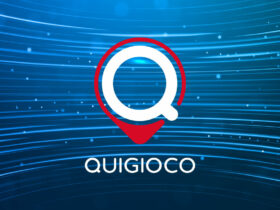What is DeFi? How does it fit into the finance and cryptocurrency system of the current market? Let’s find out together in this dedicated article
The advent of cryptocurrencies has brought with it a wave of innovations that are revolutionizing the world of finance. Among these innovations, one of the most significant is represented by DeFi, or Decentralized Finance. DeFi uses cryptocurrencies and blockchain technology to decentralize and transform traditional financial services, paving the way for a more open, accessible and transparent system.
Definition of DeFi
DeFi refers to a set of blockchain-based financial services which operate without the intermediation of traditional financial institutions. These services include loans, exchanges, insurance and much more. DeFi leverages smart contracts, which are autonomous codes running on the blockchain, to automate and facilitate financial transactions without the need for intermediaries.
DeFi Foundation: Blockchain and Smart Contracts
DeFi is based on blockchain technology, a distributed and immutable record structure. Transactions are recorded on cryptographically linked blocks, ensuring security and transparency. Smart contracts, also based on blockchainare programmable and allow automatic execution of agreements without the need for third parties.
Key sectors of DeFi
-
Loans and Instant Loans: DeFi offers platforms where users can lend or borrow funds directly without the need for a bank. This allows for quicker access to credit and offers more competitive interest rates.
-
Decentralized Exchanges (DEX): DEX platforms like chainwizard ai allow users to trade cryptocurrencies directly with each other without the involvement of intermediaries. This reduces the security risks associated with centralized exchanges.
-
Staking e Yield Farming: Users can earn yields by leveraging their tokens through the staking process or participating in yield farming programs, contributing to the security of blockchain networks and receiving rewards.
-
Derivatives and Forward Contracts: DeFi offers decentralized derivatives tools that allow users to bet on the price movements of assets without the need for intermediaries.
Advantages of DeFi
-
Universal Access: DeFi opens up access to financial services globally, allowing anyone with an internet connection to participate in the financial system.
-
Transparency and Security: Blockchain technology guarantees the transparency of transactions and the security of funds, reducing the risk of fraud and manipulation.
-
Absence of Intermediaries: DeFi eliminates the need for financial intermediaries, reducing associated costs and increasing system efficiency.
Challenges and criticisms
-
Market Volatility: The volatile nature of cryptocurrencies can lead to significant fluctuations in asset values, posing risks for investors.
-
Security and Technological Risks: Even though blockchain is considered secure, there are still risks related to technical vulnerabilities, faulty smart contracts, and cyber attacks.
-
Regulation: The lack of clear regulation is a challenge for DeFi, as some activities may violate existing financial regulations.
Conclusions
In conclusion, DeFi represents a significant revolution in the financial sector, opening up new opportunities and challenges. Its ability to decentralize financial services, offering global access and transparency, has captured the interest of investors and enthusiasts.
However, challenges such as market volatility, technological risks and the need for regulation could influence its widespread adoption. The sector must aggressively address these issues, working on technological security and working with authorities to develop a clear regulatory framework.
Despite uncertainties, DeFi continues to drive innovation, potentially redefining how we think about and participate in the financial system. Its future impact will depend on the crypto community’s ability to overcome obstacles, improve user trust and adapt to an ever-changing financial environment. DeFi remains a driving force in the evolution of cryptocurrencies, anticipating a future in which finance will be truly decentralized and accessible to all.
Continue to follow us here on techgameworld.com!
















Leave a Reply
View Comments